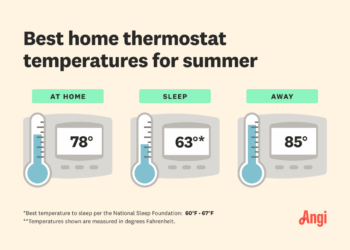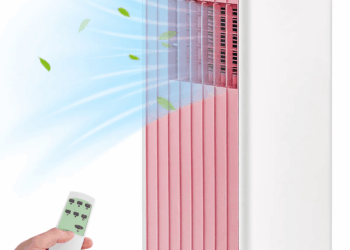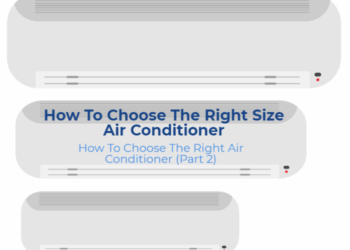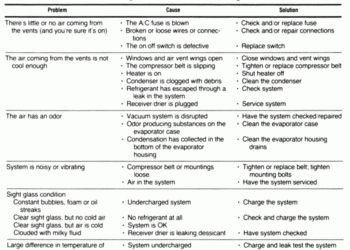Exploring the realm of energy-efficient air conditioners tailored for hot climates unveils a world where cooling meets sustainability. As temperatures soar, the need for efficient cooling solutions becomes paramount, driving innovation and eco-friendly practices.
This discussion delves into the significance of energy-efficient air conditioners in combating the heat, highlighting their benefits, features, and best practices for optimal performance.
Introduction to Energy Efficient Air Conditioners for Hot Climates
Energy-efficient air conditioners play a crucial role in hot climates where temperatures can soar to extreme levels. These regions face the challenge of maintaining a comfortable indoor environment while keeping energy consumption in check. Efficient cooling solutions are essential to combat the heat and humidity prevalent in hot climates.
The Importance of Energy Efficiency
Energy-efficient air conditioners help reduce electricity bills and lower overall energy consumption. By using advanced technology and smart design, these units provide effective cooling without excessive energy usage, making them ideal for hot climates.
Challenges in Hot Climates
In hot climates, the demand for cooling is high, leading to increased strain on power grids and higher energy costs. Energy-efficient air conditioners help alleviate this pressure by delivering cooling performance while consuming less power, thus reducing the environmental impact.
Benefits of Energy-Efficient Air Conditioners
- Lower energy bills: Energy-efficient models can significantly reduce electricity costs compared to traditional air conditioners.
- Environmental impact: By consuming less energy, these units help reduce greenhouse gas emissions and promote sustainability.
- Enhanced comfort: Energy-efficient air conditioners provide consistent cooling and maintain optimal indoor temperatures without fluctuations.
- Long-term savings: Investing in energy-efficient appliances can lead to cost savings over time through reduced energy consumption and maintenance.
Features of Energy-Efficient Air Conditioners
Energy-efficient air conditioners are designed with specific features that set them apart from traditional models, allowing for reduced energy consumption and cost savings. These key features include:
Inverter Technology
Inverter technology is a standout feature of energy-efficient air conditioners. Unlike traditional models that constantly turn on and off to regulate temperature, inverter technology allows the compressor to operate at varying speeds. This results in more precise temperature control and less energy wastage.
Energy Star Certification
Energy-efficient air conditioners often come with Energy Star certification, indicating that they meet strict energy efficiency guidelines set by the Environmental Protection Agency (EPA). These models are designed to consume less energy without compromising on performance.
Variable Speed Motors
Air conditioners with variable speed motors can adjust the airflow based on the cooling needs of the room. By operating at lower speeds when cooling requirements are lower, these motors help in reducing energy consumption significantly.
Smart Thermostat Compatibility
Many energy-efficient air conditioners are compatible with smart thermostats, allowing users to control and schedule cooling settings remotely. This feature enables better energy management and optimization based on occupancy patterns and preferences.
Dual-Stage Cooling
Some energy-efficient air conditioners come with dual-stage cooling capabilities, which means they can operate at two different speeds. This feature ensures that the unit runs at a lower capacity when the weather is mild, thus saving energy.These features collectively contribute to the energy efficiency of air conditioners, helping users reduce their energy consumption and ultimately lower their cooling costs.
Best Practices for Maximizing Energy Efficiency
When it comes to optimizing the performance of energy-efficient air conditioners, there are several best practices to keep in mind. By following these tips, you can ensure that your air conditioner operates at its highest efficiency, saving you both energy and money in the long run.
Regular Maintenance and Servicing
One of the most important practices for maximizing energy efficiency is to schedule regular maintenance and servicing for your air conditioner. This includes cleaning or replacing filters, checking for leaks, and ensuring that all components are functioning properly. By keeping your unit well-maintained, you can ensure that it operates efficiently and effectively.
Utilizing Programmable Thermostats
Another effective strategy for enhancing energy savings is to use programmable thermostats. These devices allow you to set specific temperatures for different times of the day, ensuring that your air conditioner only runs when needed. By programming your thermostat to adjust temperatures based on your schedule, you can avoid unnecessary cooling and reduce energy consumption.
Environmental Impact and Sustainability
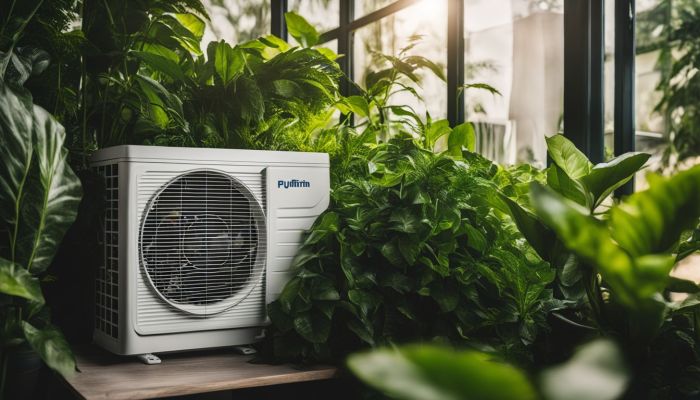
Energy-efficient air conditioners play a crucial role in reducing carbon footprint and minimizing environmental impact. By utilizing advanced technologies and energy-saving features, these cooling solutions help lower electricity consumption, which in turn leads to decreased greenhouse gas emissions.
Reduction in Carbon Footprint
Energy-efficient air conditioners are designed to operate more efficiently, consuming less electricity compared to traditional models. This reduction in energy consumption directly translates to lower carbon dioxide emissions, thus contributing to the fight against climate change.
Environmental Benefits
The environmental benefits of using energy-efficient air conditioners extend beyond carbon footprint reduction. These cooling solutions help conserve energy resources, reduce the strain on power grids, and minimize the overall environmental impact associated with cooling our living and working spaces.
Long-Term Sustainability
Investing in energy-efficient air conditioners promotes long-term sustainability by lowering energy costs, increasing energy efficiency, and reducing the reliance on fossil fuels. This shift towards sustainable cooling solutions not only benefits the environment but also contributes to a more sustainable future for generations to come.
Conclusion
In conclusion, embracing energy-efficient air conditioners not only offers relief in hot climates but also contributes to environmental preservation and long-term sustainability. By adopting these cooling solutions, we pave the way for a greener and cooler future.
Question Bank
Do energy-efficient air conditioners cost more upfront?
While the initial cost may be slightly higher, the long-term energy savings offset the upfront investment, making them cost-effective in the end.
Can energy-efficient air conditioners work effectively in extremely hot climates?
Yes, these air conditioners are specifically designed to perform efficiently even in hot climates, providing optimal cooling while conserving energy.
How often should energy-efficient air conditioners be serviced?
Regular maintenance is crucial for optimal efficiency. It is recommended to service them at least once a year to ensure smooth operation.
Exploring the realm of energy-efficient air conditioners tailored for hot climates unveils a world where cooling meets sustainability. As temperatures soar, the need for efficient cooling solutions becomes paramount, driving innovation and eco-friendly practices.
This discussion delves into the significance of energy-efficient air conditioners in combating the heat, highlighting their benefits, features, and best practices for optimal performance.
Introduction to Energy Efficient Air Conditioners for Hot Climates
Energy-efficient air conditioners play a crucial role in hot climates where temperatures can soar to extreme levels. These regions face the challenge of maintaining a comfortable indoor environment while keeping energy consumption in check. Efficient cooling solutions are essential to combat the heat and humidity prevalent in hot climates.
The Importance of Energy Efficiency
Energy-efficient air conditioners help reduce electricity bills and lower overall energy consumption. By using advanced technology and smart design, these units provide effective cooling without excessive energy usage, making them ideal for hot climates.
Challenges in Hot Climates
In hot climates, the demand for cooling is high, leading to increased strain on power grids and higher energy costs. Energy-efficient air conditioners help alleviate this pressure by delivering cooling performance while consuming less power, thus reducing the environmental impact.
Benefits of Energy-Efficient Air Conditioners
- Lower energy bills: Energy-efficient models can significantly reduce electricity costs compared to traditional air conditioners.
- Environmental impact: By consuming less energy, these units help reduce greenhouse gas emissions and promote sustainability.
- Enhanced comfort: Energy-efficient air conditioners provide consistent cooling and maintain optimal indoor temperatures without fluctuations.
- Long-term savings: Investing in energy-efficient appliances can lead to cost savings over time through reduced energy consumption and maintenance.
Features of Energy-Efficient Air Conditioners
Energy-efficient air conditioners are designed with specific features that set them apart from traditional models, allowing for reduced energy consumption and cost savings. These key features include:
Inverter Technology
Inverter technology is a standout feature of energy-efficient air conditioners. Unlike traditional models that constantly turn on and off to regulate temperature, inverter technology allows the compressor to operate at varying speeds. This results in more precise temperature control and less energy wastage.
Energy Star Certification
Energy-efficient air conditioners often come with Energy Star certification, indicating that they meet strict energy efficiency guidelines set by the Environmental Protection Agency (EPA). These models are designed to consume less energy without compromising on performance.
Variable Speed Motors
Air conditioners with variable speed motors can adjust the airflow based on the cooling needs of the room. By operating at lower speeds when cooling requirements are lower, these motors help in reducing energy consumption significantly.
Smart Thermostat Compatibility
Many energy-efficient air conditioners are compatible with smart thermostats, allowing users to control and schedule cooling settings remotely. This feature enables better energy management and optimization based on occupancy patterns and preferences.
Dual-Stage Cooling
Some energy-efficient air conditioners come with dual-stage cooling capabilities, which means they can operate at two different speeds. This feature ensures that the unit runs at a lower capacity when the weather is mild, thus saving energy.These features collectively contribute to the energy efficiency of air conditioners, helping users reduce their energy consumption and ultimately lower their cooling costs.
Best Practices for Maximizing Energy Efficiency
When it comes to optimizing the performance of energy-efficient air conditioners, there are several best practices to keep in mind. By following these tips, you can ensure that your air conditioner operates at its highest efficiency, saving you both energy and money in the long run.
Regular Maintenance and Servicing
One of the most important practices for maximizing energy efficiency is to schedule regular maintenance and servicing for your air conditioner. This includes cleaning or replacing filters, checking for leaks, and ensuring that all components are functioning properly. By keeping your unit well-maintained, you can ensure that it operates efficiently and effectively.
Utilizing Programmable Thermostats
Another effective strategy for enhancing energy savings is to use programmable thermostats. These devices allow you to set specific temperatures for different times of the day, ensuring that your air conditioner only runs when needed. By programming your thermostat to adjust temperatures based on your schedule, you can avoid unnecessary cooling and reduce energy consumption.
Environmental Impact and Sustainability

Energy-efficient air conditioners play a crucial role in reducing carbon footprint and minimizing environmental impact. By utilizing advanced technologies and energy-saving features, these cooling solutions help lower electricity consumption, which in turn leads to decreased greenhouse gas emissions.
Reduction in Carbon Footprint
Energy-efficient air conditioners are designed to operate more efficiently, consuming less electricity compared to traditional models. This reduction in energy consumption directly translates to lower carbon dioxide emissions, thus contributing to the fight against climate change.
Environmental Benefits
The environmental benefits of using energy-efficient air conditioners extend beyond carbon footprint reduction. These cooling solutions help conserve energy resources, reduce the strain on power grids, and minimize the overall environmental impact associated with cooling our living and working spaces.
Long-Term Sustainability
Investing in energy-efficient air conditioners promotes long-term sustainability by lowering energy costs, increasing energy efficiency, and reducing the reliance on fossil fuels. This shift towards sustainable cooling solutions not only benefits the environment but also contributes to a more sustainable future for generations to come.
Conclusion
In conclusion, embracing energy-efficient air conditioners not only offers relief in hot climates but also contributes to environmental preservation and long-term sustainability. By adopting these cooling solutions, we pave the way for a greener and cooler future.
Question Bank
Do energy-efficient air conditioners cost more upfront?
While the initial cost may be slightly higher, the long-term energy savings offset the upfront investment, making them cost-effective in the end.
Can energy-efficient air conditioners work effectively in extremely hot climates?
Yes, these air conditioners are specifically designed to perform efficiently even in hot climates, providing optimal cooling while conserving energy.
How often should energy-efficient air conditioners be serviced?
Regular maintenance is crucial for optimal efficiency. It is recommended to service them at least once a year to ensure smooth operation.


